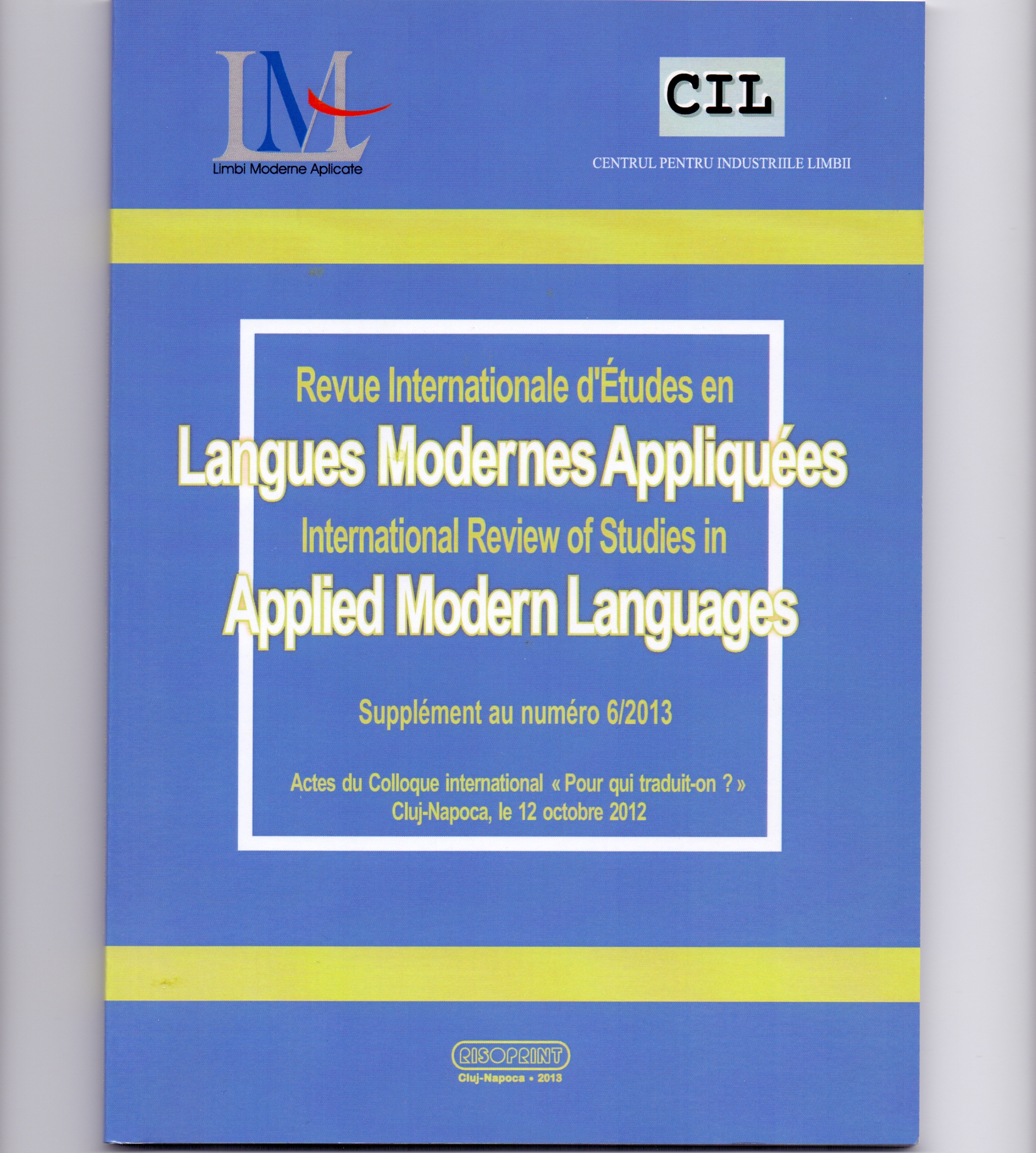Das Problem des Adressaten: Von Luther bis heute
The Issue of Addressees: from Luther until Today
Author(s): Miorița UlrichSubject(s): Translation Studies
Published by: Risoprint
Keywords: receiver of the translation; purpose of the translation; Luther; Coșeriu;
Summary/Abstract: Kent Nagano, general director of the Bavarian State Opera in Munich, emphasized on 13 July 2013 in an interview at the radio station Bayern Klassik the appropriateness, indeed the necessity of rerecording musical works of the past. He attributed this to the change of time, each epoch bringing forth ‘new’ addressees who confront music with constantly changing habits and expectations. Thereby Nagano considers the addressee as diachronically changeable, not synchronously variable, i.e. he makes no explicit distinction between music for children, music for amateurs, music for professionals, and in doing so he refers to a generic addressee who expects and requires a different implementation of music over time. From here, the question arises to what extent the parameter ‘addressee’ may be of importance in the case of speech and implicitly of translation, that is, as we know, speaking with a given content? Can parallels between music and language (translation) be determined with reference to the addressee? Can an original text inspire different translations, depending on the target group and generation? What is the attitude of translators and translation scholars towards the question of the addressee when translating?
Journal: Revue Internationale d'Études en Langues Modernes Appliquées
- Issue Year: 06/2013
- Issue No: Suppl.
- Page Range: 7-12
- Page Count: 6
- Language: German

